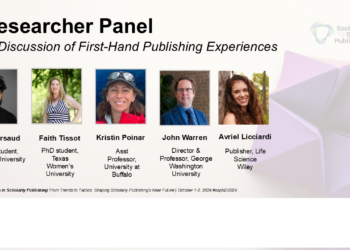In every scientific field, there are a small number of very highly-cited articles. Some are classics, many are revolutionary, some are cited merely because they represent what was first published on the topic.
In a new paper entitled, The first-mover advantage in scientific publication, appearing last week in the arXiv, Mark Newman, professor of physics at the University of Michigan, developed a mathematical model to predict citations to articles based on when they were published. His model confirms with empirical data that the first articles published in a field, regardless of their content, will receive citations at a much greater rate than articles published later. Not only do these papers get an early start, but they maintain this advantage in perpetuity.
Early papers in a field, Newman describes, are cited often because they are the only papers on the topic and scientists feel some need to cite something relevant. The head-start in citations that these early papers enjoy are then amplified by subsequent authors, a social behavior that sociologist Robert K. Merton described 40 years ago as the Matthew Effect. In essence, authors tend to cite highly-cited papers papers, in part, because they are highly cited. It is a process in which the rich get richer. Links to web pages follow the same dynamic — highly-linked web pages are more likely to receive additional links. In his paper, Newman writes:
Were we wearing our cynical hat today, we might say that the scientist who wants to become famous is better off — by a wide margin — writing a modest paper in next year’s hottest field than an outstanding paper in this year’s.
The fact that early papers receive an advantage, does not preclude highly cited papers appearing later on, suggesting that being first is not entirely a game of winner takes all.
Scientists, like everyone else, are social beings and sensitive to the behaviors of their peers. A highly-cited paper indicates that the article was deemed important by others, and hence, should be cited. It does not specify why an article was cited in the first place.
In a previous blog post, The Paradox of Online Journals, we described that scientists may be receiving more signals from their peers through the developments in online journal systems. Whether this process speeds up consensus-building or gives an unfair advantage to those who come early has yet to be debated.
![Reblog this post [with Zemanta]](http://img.zemanta.com/reblog_e.png?x-id=0a7759f1-357c-4ce5-b134-0e124e92203d)


